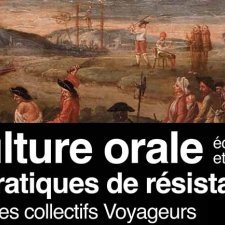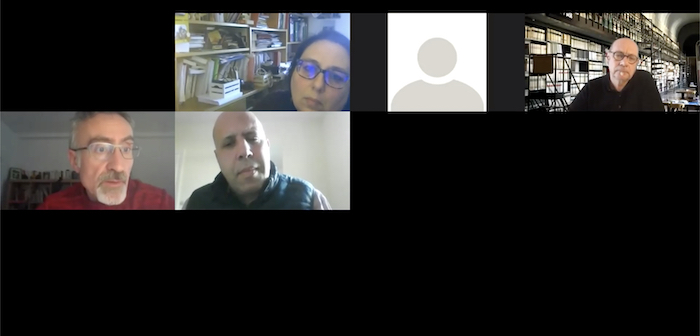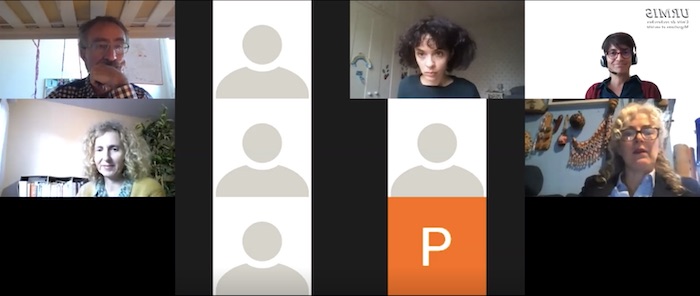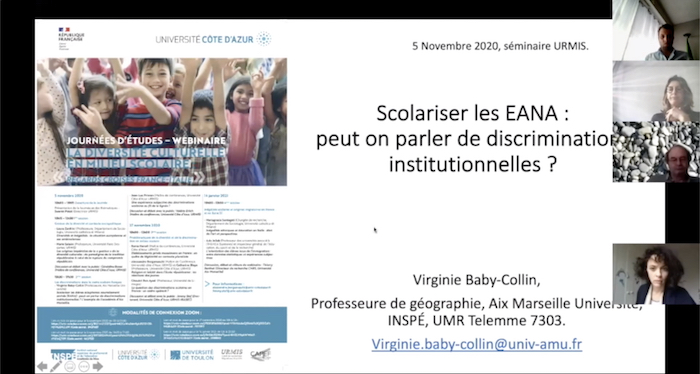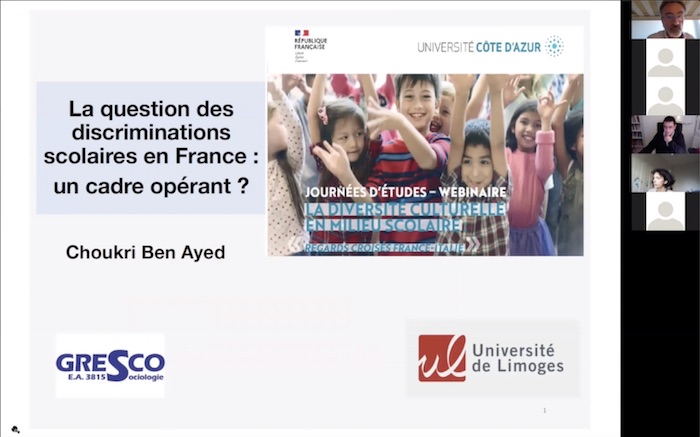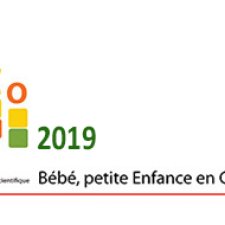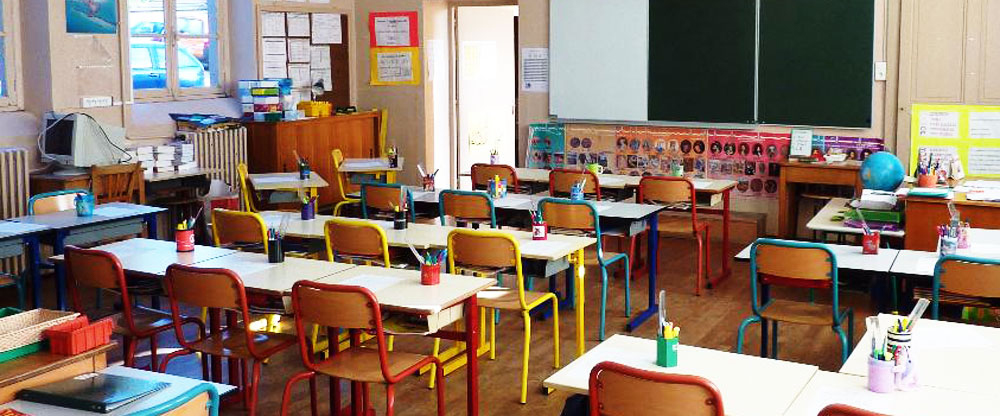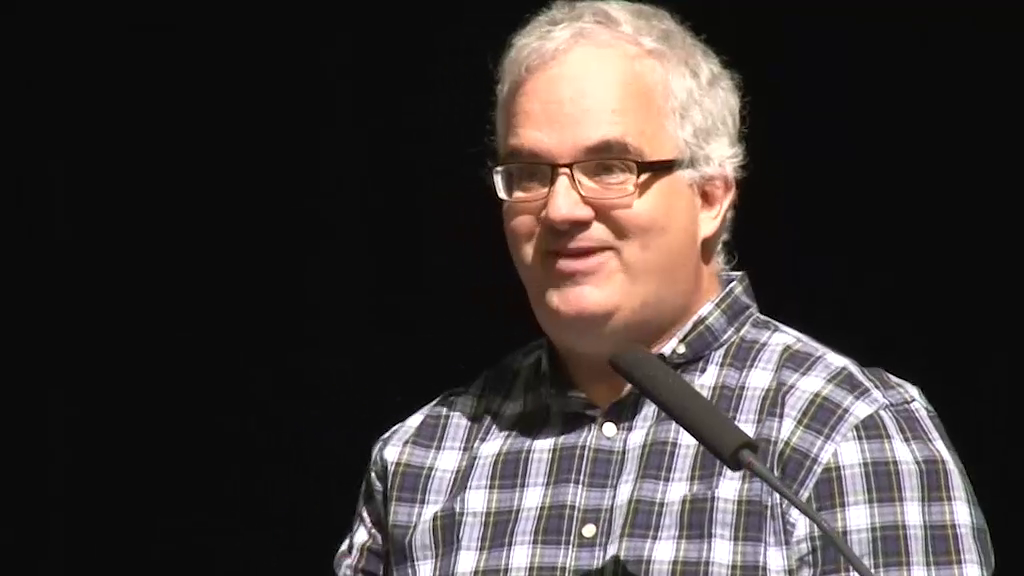Notice
The Amity International school network in Cameroon
- document 1 document 2 document 3
- niveau 1 niveau 2 niveau 3
Descriptif
1st PANEL : Private actors producing and receiving Turkish soft power : relationships to the Turkish state
Présentation 1.
Charly DELMAS TSAFACK (International relations institute of Cameroon), “The Amity International school network in Cameroon”
The emerging countries are likely to play a leading role in the world economy and governance in a more or less near future. Africa constitutes a new playing field of these countries. Forsaken formerly by globalization, the African continent from now on is courted as well by the traditional industrial powers as by the emergent powers. Turkey is not in rest. In 1998, the Turkish diplomats through their Ministry of Foreign Affairs started the “Opening up to Africa” Program. Within the framework of a strategy of indirect influence in Africa, a tacit agreement between the Turkish Ministry of National education and the association known as the “fethullahcı” allowed the development of a network of Turkish schools on the black continent. It is the case of the Amity international college network of Cameroon who counts already three school groups (Ngaoundere, Yaounde and Douala). This article proposes to show, starting from an investigation of field research and of an empirical analysis, how Turkey through these schools installs its influence in Cameroon. The article first of all presents the network of Amity International College of Cameroon before examining the challenges of the establishment of this company. The article also shows that these schools are an instrument of the cultural and economic power of Turkey in Cameroon. It concludes that this network of schools of excellence constitutes a powerful instrument of Turkish soft power in Cameroon.
Intervention / Responsable scientifique
Dans la même collection
-
Regional networks in an emerging art market area : positionning Istanbul as a Hub
Analyze Istanbul art world’s recent positioning as a point of attraction for neighboring countries’ art scenes
-
Networks of Influence: Reconceptualising Soft Power
SadriuBehar2d PANEL : Diffusion, circulation and backfires of Turkey’s influence Présentation 5. Behar SADRIU / School of Oriental and African Studies – University of London : “Networks of Influence:
-
Turkish sport diplomacy as a tool for a renewed power ? Success and limits to Turkish “soft power"
PoloJean-François3rd PANEL : Diversity of the Turkish soft power's vectors Présentation 5. Jean-Francois POLO / Sciences Po Rennes - CRAPE - Galatasaray University : "Turkish sport diplomacy as a tool for a
-
An illusionary ‘power of seduction’: an assessment of Turkey’s soft power capacity in the Arab World
JabbourJana J.3rd PANEL : Diversity of the Turkish soft power's vectors Présentation 2. Janna JABBOUR / Sciences Po – CERI : "An illusionary ‘power of seduction’: an assessment of Turkey’s soft power capacity
-
Major assets for Turkish diplomacy in the Caucasus and question of the "background
MustafayevElshan2d PANEL : Diffusion, circulation and backfires of Turkey’s influence Présentation 4. Elshan MUSTAFAYEV / Sciences Po Lyon – IFEA : “Major assets for Turkish diplomacy in the Caucasus and
-
Magnificent Century: Turkish Soap Opera as a Source of Soft Power
Bowen ÇolakoğluKimberley3rd PANEL : Diversity of the Turkish soft power's vectors Kimberley BOWEN ÇOLAKOĞLU / Istanbul Technical University : “Magnificent Century: Turkish Soap Opera as a Source of Soft Power” Suleiman
-
Turkish series exportation market and its counterflow ‘soft power’ effects
ParisJulienThrough the example of Turkish series production and their international diffusion this paper aims to question the use and limits of the concept of soft power, and more precisely the role given to
-
The Hizmet Movement as a softpower tool in the Kurdistan Region of Iraq: between foreign policy an…
BenhaïmYohanan2d PANEL : Diffusion, circulation and backfires of Turkey’s influence Présentation 2. Yohanan BENHAIM / Paris 1 University – IFEA :"The Hizmet Movement as a softpower tool in the Kurdistan Region
-
Two dimensions of soft-power politics: Turkish involvement in the Balkans
MuśJan1st PANEL : Private actors producing and receiving Turkish soft power : relationships to the Turkish state Présentation 2. Jan MUŚ (Center for Eastern Studies - Catholic University of Lublin -
Sur le même thème
-
Des sociétés dans l'État, les résistances discrètes des Manouches
PoueytoJean-LucLe but de cette Journée d’étude est de faire se rencontrer des chercheurs de différentes disciplines et des acteurs de la vie culturelle tsigane autour des questions de la transmission de la mémoire
-
Session 4 : Inégalités scolaires et origines migratoires en France et en Italie
La diversité culturelle en milieu scolaire. Regards croisés France-Italie Journée d’études organisée sous la forme d’un webinaire les 5 et 27 novembre 2020 et le 12 février 2021 par le groupe de
-
Session 1 : Gestion de la diversité et contexte sociopolitique
La diversité culturelle en milieu scolaire. Regards croisés France-Italie Journée d’études organisée sous la forme d’un webinaire les 5 et 27 novembre 2020 et le 12 février 2021 par le groupe de
-
Session 3 : Les discriminations dans le cadre scolaire français
La diversité culturelle en milieu scolaire. Regards croisés France-Italie Journée d’études organisée sous la forme d’un webinaire les 5 et 27 novembre 2020 et le 12 février 2021 par le groupe de
-
Session 2 : Problématiques de la diversité et de la discrimination en milieu scolaire
La diversité culturelle en milieu scolaire. Regards croisés France-Italie Journée d’études organisée sous la forme d’un webinaire les 5 et 27 novembre 2020 et le 12 février 2021 par le groupe de
-
Socialisations langagières et inégalités scolaires / Élisabeth Bautier
BautierÉlisabethSous-tendue par la question des inégalités d’apprentissage scolaires et des habitudes langagières de l’école qui sont au cœur de ces inégalités, cette communication porte sur les modes de
-
Transformations universitaires et évolution de la vie intellectuelle en France depuis les années 18…
CharleChristopheDepuis la fin du XIXe siècle on ne peut comprendre la vie intellectuelle française sans la mettre en relation avec ce qui se passe dans l’enseignement supérieur. Celui-ci passe par de nombreuses
-
Le numérique et les jeunes en Chine : culture, écriture et pouvoir
Séminaire dispensé par Gladys Chicharro
-
Les établissements scolaires à l'heure de l'évaluation : des contradictions organisationnelles à l'…
BarrèreAnneAnne Barrère est sociologue, professeure en sciences de l’éducation à l’université Paris Descartes, et membre du laboratoire CERLIS-CNRS (Sorbonne-Paris-Cités). Ses travaux de recherche ont porté
-
La coordination des acteurs dans la résolution de problèmes complexes. Un exemple au Québec : servi…
Yves Couturier (Ph. D. en sciences humaines appliquées) est Professeur titulaire à l’Ecole de travail social de l’Université de Sherbrooke. Il est titulaire de la Chaire de recherche du Canada en
-
Table ronde n° 2 - Séminaire Grande pauvreté et réussite scolaire
Préparer la mise en œuvre des principales préconisations du rapport de l’inspection générale « Grande pauvreté et réussite scolaire, le choix de la solidarité pour la réussite de tous ».
-
Conclusion - Séminaire Grande pauvreté et réussite scolaire
Ce séminaire a pour vocation de préparer la mise en œuvre des principales préconisations du rapport de l’inspection générale « Grande pauvreté et réussite scolaire, le choix de la solidarité pour la











